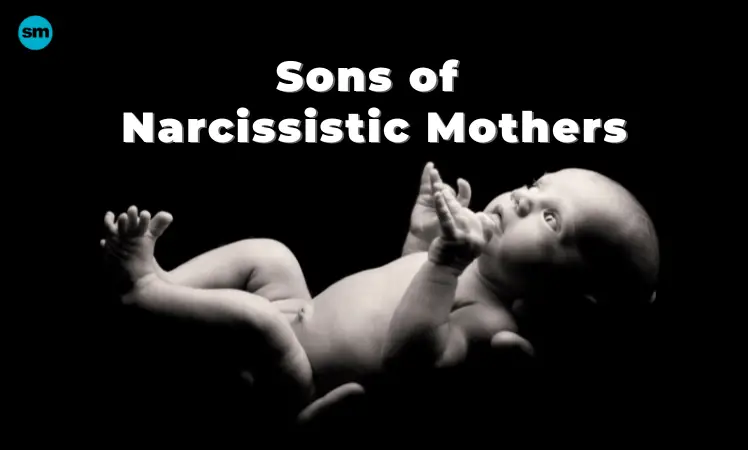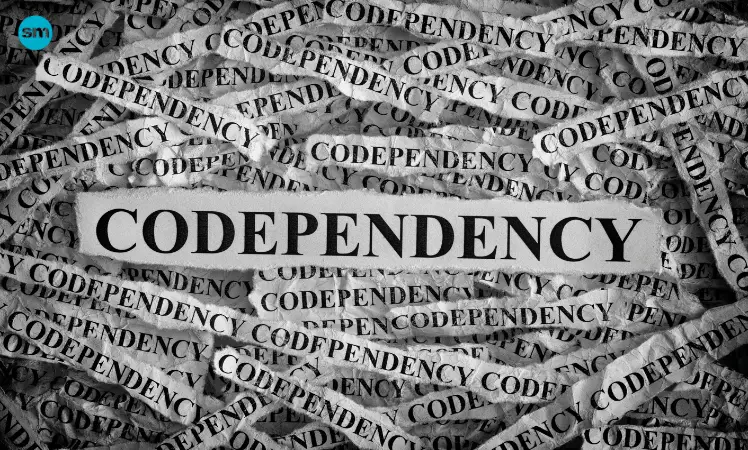Sons Of Narcissistic Mothers: The Severity Of Toxic Parenthood

Last Updated on January 19, 2024 by Lori Pace
Children of narcissists are all affected. Sons of narcissistic mothers suffer loss in autonomy, self-worth, as well as future relationships with women.
Narcissists lack empathy, compassion, and the ability to care for their children. They see their children as extensions of themselves, not as individuals. They criticize and neglect their children’s needs and feelings, while theirs take precedence.
Narcissists believe they are entitled and will do anything to get what they want. They demand compliance by manipulating, controlling, guilt, shame, and manipulation. If you refuse their demand, they will punish you with coldness, withholding, and attacks. Their insatiable, unrealistic desire for admiration and high regard drives them into insecurity. They are easily offended, which can lead to anger and contempt.
Dynamics Between Sons And Narcissistic Mothers
Each individual’s personality, values and degree of narcissism will vary. Some mothers are too involved with their children and others are disinterested. Some are aggressive while others are caring or seductive. These are just some examples of common patterns. Your experience will be different.
Narcissistic Mother Might Neglect Their Sons
Narcissistic mothers who feel overwhelmed by motherhood neglect their children and shame them for being too dependent or childlike. They can’t support their child’s needs because they are too dependent on themselves. They might insist that their son “be a man” or favor one child while ignoring or demeaning another.
Enmeshment
Other narcissistic mothers become entangled instead of neglecting their children. They turn their children into narcissistic resources. A mother might appear independent but may be emotionally dependent and encourage mutual dependence with her son by controlling and adoring. She may depend on her son to be supportive, to listen to, to provide companionship, and to take care of her physical and emotional needs. The mother might be able to rely on her son as an adult to make financial decisions and manage her finances.
She uses her son to provide her with attention, admiration and fulfill her needs and wants. He is made to feel important, loved, and valued by her, which reinforces his dependence. But it’s not for her pleasure. Her over-involvement in her son’s life can disguise her toxic parenting. His attempts to be autonomous come at a steep price. He learns to manipulate her with anger, shame and guilt, self-pity and/or martyrdom and feels obliged to follow her lead.
Idealization And Criticism
Narcissistic mothers often idolize their sons. They instill confidence in their son and give them a sense of importance. He matures and challenges his control. She then disparages him and tries to correct and alter him. She may boast about her son to friends in order to boost her self-esteem, but she is often critical of her son at home.
The child may act out in anger or attempt to please her to get her approval. It can be confusing and traumatizing for him to fall from grace. This is made worse if another child becomes a parent. It can lead to him losing his uniqueness and sibling rivalry.
Triangulation
A narcissist’s marital relationships lack intimacy. A husband might avoid a narcissistic wife by going to work. She will then bring in another person to help her. Her son may be her confidante or companion. Children make ideal subjects as they can easily control their parents and idealize them.
A son’s father who is absent, violent, abusive, or has a drug or mental problem is worse. To survive, the son might seek refuge in his mother or find comfort in drugs and alcohol.
Seduction And “Oedipal” issues
It can be even more harmful if the mother seduces and sexualizes her son’s relationship. Molestation can also occur without the mother being sexually seductive. This can lead to a mother’s attraction, which is often unconscious. Ideal is for a son to become closer to his father and identify with him as a male role model. This is possible if the father is not present or a divorced mother alienates and denigrates her ex-husband.
Some sons, if left unresolved, believe that their mother loves them more than her husband. Instead of accepting defeat, he is inflated and victorious against his father. He’s not content to accept defeat, but he’s inflated and victorious over his father.
Narcissistic Mothers Envy And Control Their Sons
As narcissistic mothers’ daughters experience envy and competition from their mothers, a narcissistic mom may also be jealous of her sons’ girlfriends and try to compete with her for her son. Because no one can measure up to her high standards and self-image, there will never be enough.
He must keep her as his number one. She might try to control his intimate relationships and disrespect his partner. The son then feels guilty because he doesn’t know the right boundaries and is unable to set them.
The Damage To Sons Of Narcissistic Mothers
Sons of narcissistic mother’s don’t feel loved because of who they are. They only love what they can do to please their parents. Their children should be positive about their appearances, as they are very important. If love is to be given, it must be conditional. It is not about understanding, appreciating and accepting the son’s true, unique self. Value of a son is determined by how much he promotes his parents’ ideas and ego. This could include influencing him to pursue a preferred profession or to live the life he wants.
Codependency
These children are at risk of becoming insecure and dependent, regardless of their worldly success. Their individual identities have never been supported. Verbal abuse and a lack of love for their true self have eroded their self-worth and self-esteem. They learned to suppress their feelings and needs in order to please their mother.
Sons become unable to decline their mother’s needs and feelings, which can lead to them being insecure in adult relationships. They may have trouble identifying and expressing their feelings and needs. They might be willing to sacrifice and feel unworthy of people-pleasing. If the father is unable to stand up for his wife and protect them from her jabs and control, he fails as a role model in setting boundaries. A son may feel resentful and exploited when his father is not there to protect him.
Intimacy Issues
A son who feels unsafe expressing his feelings and needs to his mother feels unsafe in intimate adult relationships. He fears being judged by his partner after he has been emotionally abandoned and manipulated. He is also afraid of being controlled and engulfed by his intimate partner, after he was enmeshed in the matrimonial circle. The son will avoid intimacy and his partner will demand more. This increases his anxiety and his defenses.
The Sons Grow Resentment To Their Mothers
The son might feel controlled and/or exploited by his mother. He may also harbor deep hatred toward his mother, even though they are close. This can also extend to other women. He will generally react to women with anger, resistance, compliance or resistance.
Some men are aggressive and distrust women. Some men are manipulative and passive-aggressive. As if their mother was asking them, they will overly accommodate, lie to, or passively decline simple requests from their spouse. They may become hostile and act just like their mother. Intimacy fears and resentment could lead them to be unfaithful or dishonest, especially if their father was.
Repetition
Sons of Narcissistic mothers have higher rates for narcissism. It could be that she is more likely to idolize and exaggerate him than to compete with him, like she would with a child.
Sons might relive their mother’s relationship with controlling, demanding or abusive women. They might partner with an older woman or a narcissist, an addict, someone with a borderline personality disorder, or another mental problem. They might become caregivers to their partner in the same way as their mother and find it difficult to leave.
A son must learn to accept his mother’s dysfunctional personality, anger towards her, and grief in order to heal. He must eventually learn to love and accept his parents, regardless of how much he loves or dislikes them. He must also recognize his worth and learn to love his mother and other people.
Conclusion
There are ways to recover from narcissistic relationships. Besides, if you are co-parenting with such narcissists, or in a toxic relationship with a narcissist, you can consider some tips to make they fear you while learning how to love yourself more.









